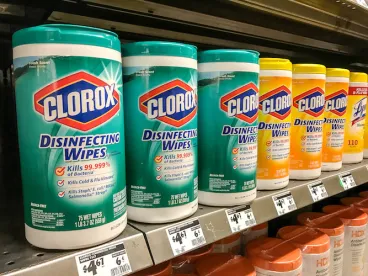With the continuing spread of the Coronavirus Disease 2019 (“COVID-19” or “coronavirus”), retailers are sure to face a number of issues that they can and should prepare for. The primary issues facing retailers will likely be supply chain issues, covered here (The Impact of Coronavirus on Supply Chain), and employment issues, covered here (What Employers Need to Know to Prepare for Coronavirus). This post addresses certain pricing and advertising issues that may also arise as a result of the spread of coronavirus.
Pricing Gouging Laws. Jurisdictions across the United States generally prohibit sharp price increases on certain consumer goods after an emergency has been declared by the federal, state, or local governments. As of the time of this posting, California, Washington, and Florida had declared emergencies, but that list is likely to grow.
The price gouging laws generally prohibit sharp price increases on lodging, food and drink (including food and drink for animals), emergency supplies, and medical supplies, among other items that are generally in high demand during an emergency.
Online marketplaces that allow third-party sellers to sell product on their websites should pay particular attention to the price gouging laws. Those online marketplaces may risk liability if they are not vigilant in stopping third-party sellers from engaging in price gouging on their sites. There have already been news reports of price gouging by third party sellers on popular online marketplaces.
False Discounts. On the flip side of the coin, retailers selling non-essential goods may think about dropping prices and offering steep discounts to drive demand. This can be risky. Retailers across the country have been hit with litigation alleging that their discounts are false and deceptive where the retailer has not sold the item at the non-discounted price in a sufficient quantity or for a sufficient period of time. Discounting prices and then comparing the new prices to the prior, full price, without properly establishing the full price, will invite litigation and potentially government investigations. This issue may be become particularly acute if coronavirus causes severe supply chain issues, thereby preventing companies from offering a sufficient quantity of an item at full price for a sufficient period of time.
Advertising or Labeling Claims. Retailers should be careful when making claims that a product or good can help protect individuals from being infected by coronavirus. Numerous federal and state regulations will bear on such claims, and those regulations will, among other things, require that the representations are accurate and can be substantiated. Any advertising claim that appears to play off or take advantage of the public’s fear of coronavirus is likely to receive heightened scrutiny.
“Made In” Claims. Retailers should remain vigilant in complying with laws and regulations requiring labels accurately describing the location where any item was made, manufactured, or assembled. Retailers cannot skirt these laws simply because they may not want to identify the origin of their products.
* * *
These are just a few considerations for retailers facing coronavirus. There are others, which are addressed in here and here. Retailers are encouraged to work with legal counsel when navigating these complex issues.



 />i
/>i

